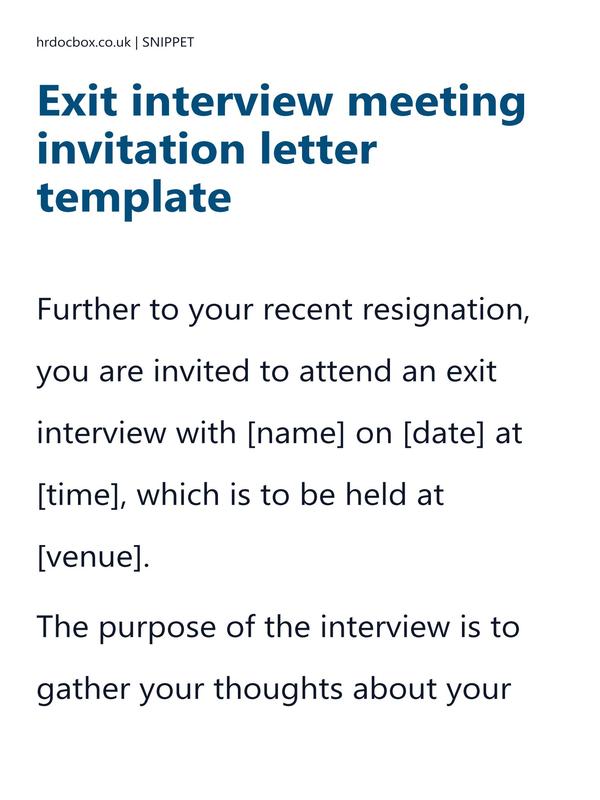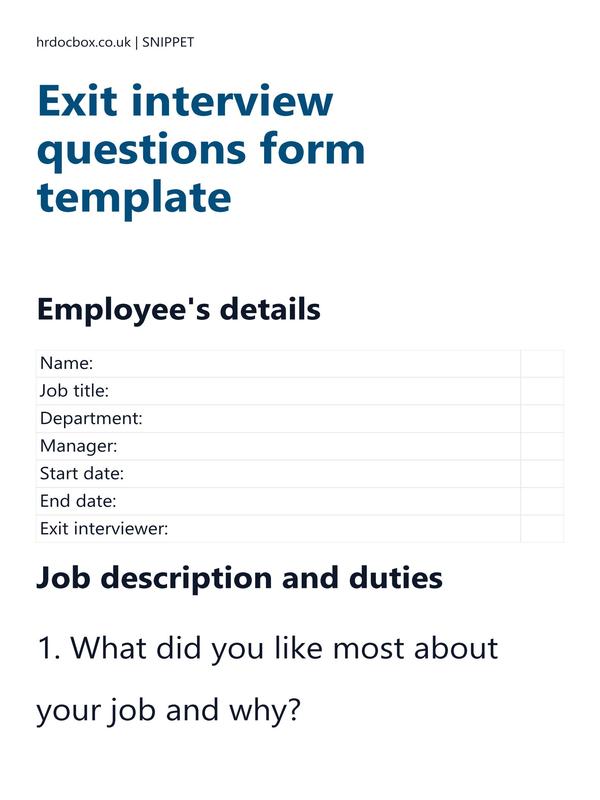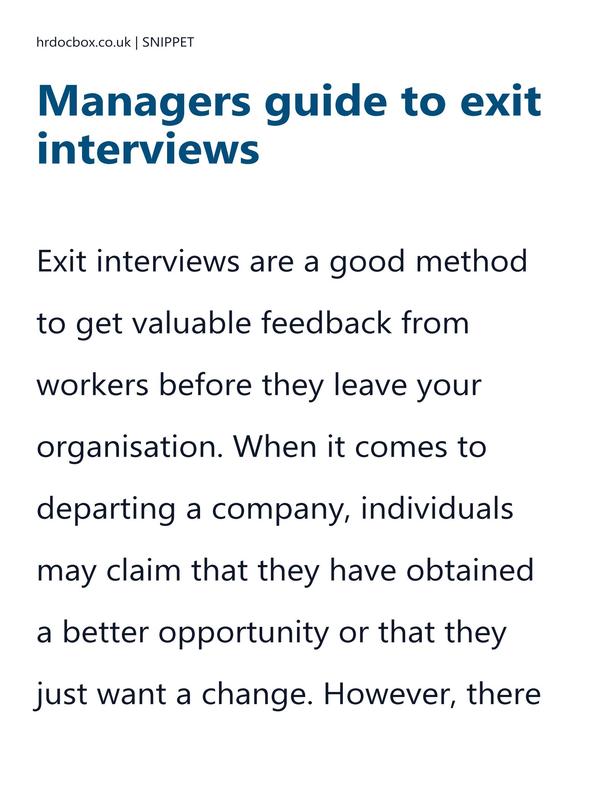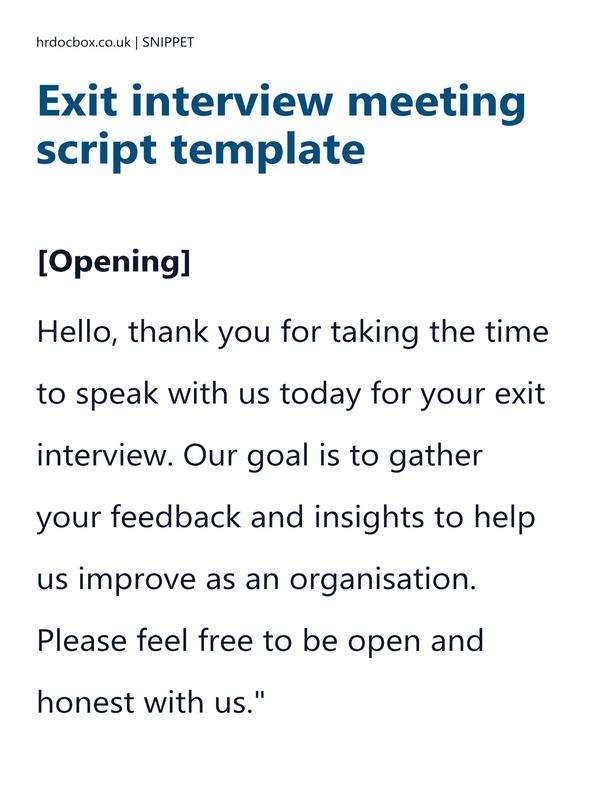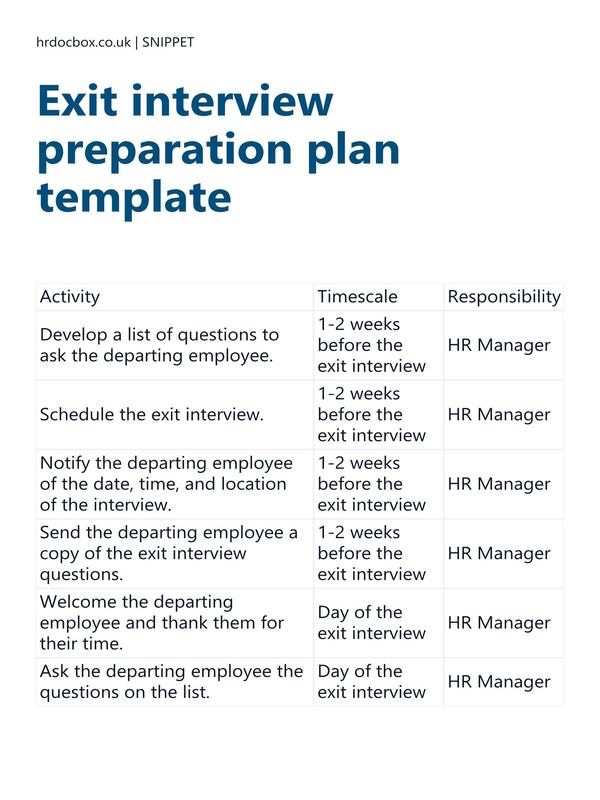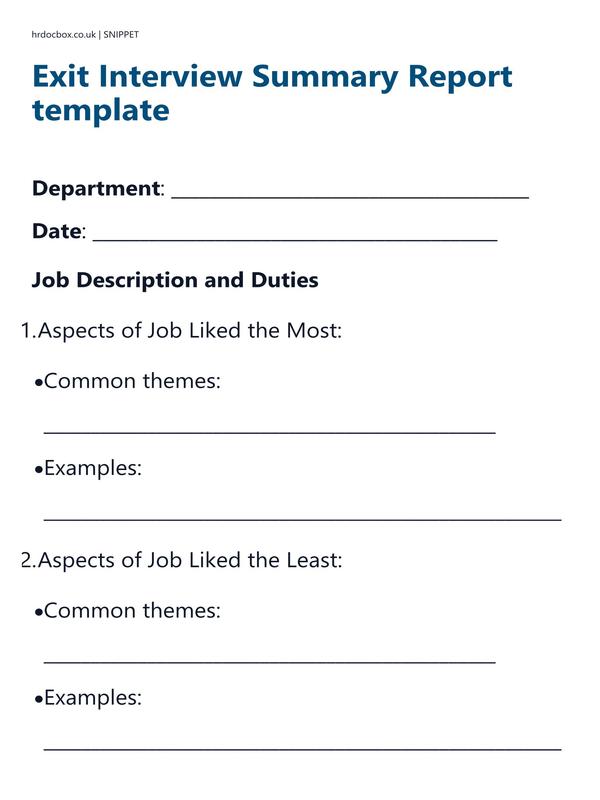Exit Interview templates toolkit
Our Exit Interview Templates Toolkit facilitates constructive feedback collection, improving insights for organisational improvement.
It is a must-have resource for any organisation looking to gain valuable insights from departing employees. Our toolkit includes a variety of customisable templates to help you conduct exit interviews effectively and efficiently.
Our templates cover a range of topics, including reasons for leaving, job satisfaction, and suggestions for improving the organisation. With our Exit Interview Templates Toolkit, you'll have access to templates for conducting interviews in person or online, as well as for analysing and reporting on the data you collect.
- Includes 12 months' access to 7 Exit Interview templates, with all updates to the Exit Interview templates toolkit provided free of charge and notified to you.
- UK-specific accuracy.
- Instantly download templates as Word / PDF / plain text, or send by email.
- These Exit Interview templates toolkit will SAVE you up to 6 hours drafting & research, save you money, and reduce your risk.
Exit Interview
An exit interview is a discussion between the employer and an employee who has decided to leave the business. It’s helpful to imagine them as the opposite of a job interview - instead of asking why they want to join your company, you’re asking them why they’ve decided to leave.
The objective is to better understand why that employee has decided to resign, in the hope that the company can improve how it works and prevent other employees from following suit.
By performing an exit interview with an employee before they go, you’ll have an opportunity to get honest feedback about positive and negative experiences. This will help you determine whether there is the potential to increase employee retention, improve engagement, and get valuable insight to help hire their replacement.
Exit Interview templates are essential for managing a low-risk, compliant Exit Interview process.
Compliance
Compliance
There is no legal requirement to conduct an exit interview, but they can provide you with some useful information about underlying issues within your organisation.
-
Exit interviews should be voluntary and not used as a condition of employment or a requirement for receiving a reference.
-
Employers should inform the employee of the purpose of the exit interview and ensure that the employee understands that they can refuse to participate or disclose any information they do not wish to.
-
Employers should ensure that the exit interview is conducted in a private and confidential setting to allow the employee to feel comfortable sharing their feedback and concerns.
-
Employers should avoid asking questions that could be discriminatory or cause the employee to feel uncomfortable, for example, questions about the employee's age, disability, religion, or sexual orientation.
-
Employers should handle any personal data collected during the exit interview in accordance with data protection laws and ensure that the data is not disclosed to third parties without the employee's consent.
-
Employers should provide feedback to the employee on any issues raised during the exit interview and take appropriate action to address any concerns or issues identified.
-
Employers should keep records of the exit interview, including any feedback or concerns raised by the employee, and use this information to improve their employment practices and address any issues within the organisation.
Exit Interview workflow
Exit Interview workflow
Here we show you which resources to use to effectively hold an exit interview, taking into account the different decisions and directions that are likely / possible.
Following this flowchart will ensure that you factor in all eventualities, follow legal / code of conduct or best practice processes, communicate effectively, and reduce the risk of things going wrong.
Frequently Asked Questions about Exit Interview templates
Frequently Asked Questions about Exit Interview templates
-
Can small businesses use these Exit Interview templates?
Yes. The Exit Interview templates in this toolkit are designed to be flexible and suitable for organisations of all sizes, including small businesses and charities. They follow UK employment law best practice, so even if you don't have an in-house HR team, you can confidently manage Exit Interview processes and issues.
-
Are these Exit Interview templates up to date for UK law in 2026?
Absolutely. All templates are drafted with the latest ACAS guidance and UK employment legislation in mind. We review and update them regularly, so you can be confident they remain compliant.
-
What types of Exit Interview letters and documents are included?
Every toolkit includes a complete set of editable templates, supporting documents, and manager guidance designed to save time and ensure compliance.
-
How will this help me as an HR manager or business owner?
Purchasing the toolkit saves you hours of drafting time and reduces the risk of legal mistakes. Instead of starting from scratch, you'll have clear, professional templates that you can adapt to your business.
-
Do I get instant access to the templates?
Yes. Once purchased, you'll be able to download the Exit Interview toolkit instantly. The templates are provided in editable Word or Excel format so you can customise them easily, and PDF format for easy sharing.
-
Can I preview a sample Exit Interview template before buying?
We provide free examples of our templates here. This gives you a sense of the quality and layout before you commit to purchasing the full toolkit.
-
What if I need a full HR toolkit, not just Exit Interview templates?
If you're looking for broader support, we also offer library bundles that include Exit Interview templates along with absence, grievance, and other HR policies. These may be more cost-effective if you need a complete HR library.
-
Why should I use these templates, and not AI to generate them?
The risk of using free AI-generated templates 'without review' includes your legal exposure, missing context, and no awareness of the wider process. Purchasing from us mitigates that risk.

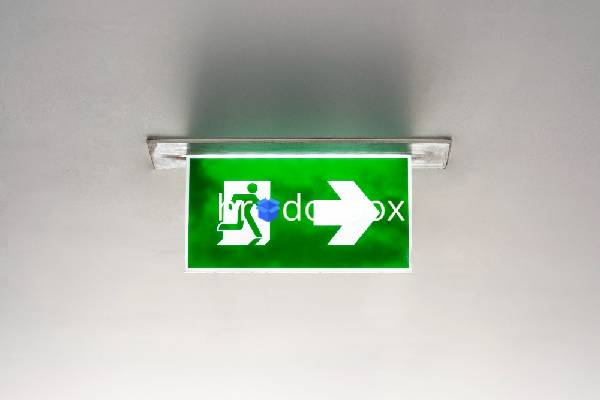
-form-template-preview.jpg)
